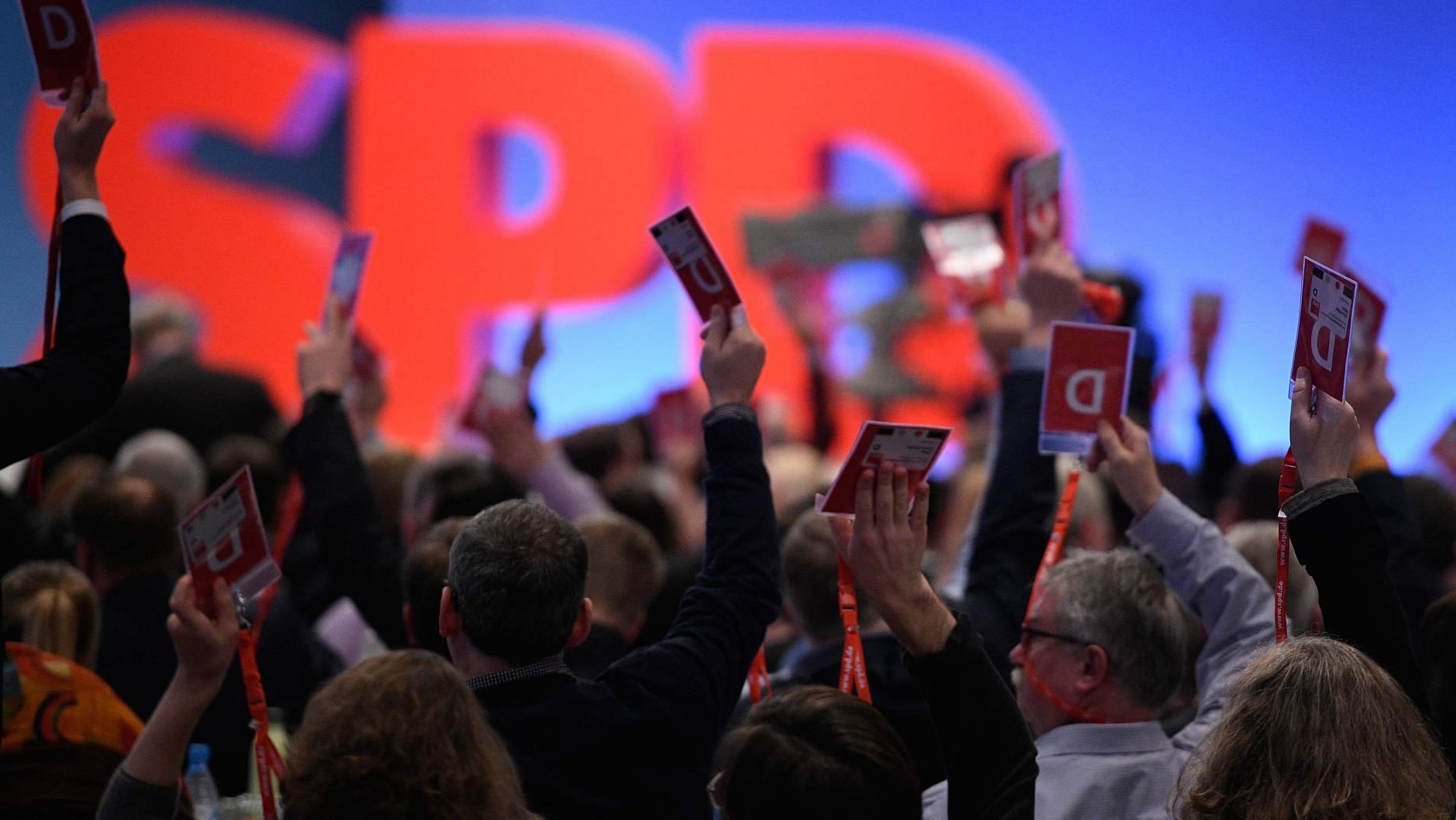The fate of Germany’s next government will be placed in the hands of nearly half a million Social Democratic party (SPD) members on Tuesday, when ballots to vote on the proposed coalition with Angela Merkel’s conservative alliance land on doormats.
The 463,723 SPD members will decide whether Germany is heading for another grand coalition, or the uncertainty of either fresh elections or a minority government.
GroKo or no-go?
The vote is expected to be tight, with vocal opposition from the powerful youth wing of the party, reservations about again sharing power with Merkel, and uncertainty after Martin Schultz stepped down as party leader.
Older members are expected to vote for the “GroKo” deal in a bid to bring stability to Germany six months after the inconclusive election; but the youth wing, led by 28-year-old Kevin Kuhnert, is an influential force within the party.
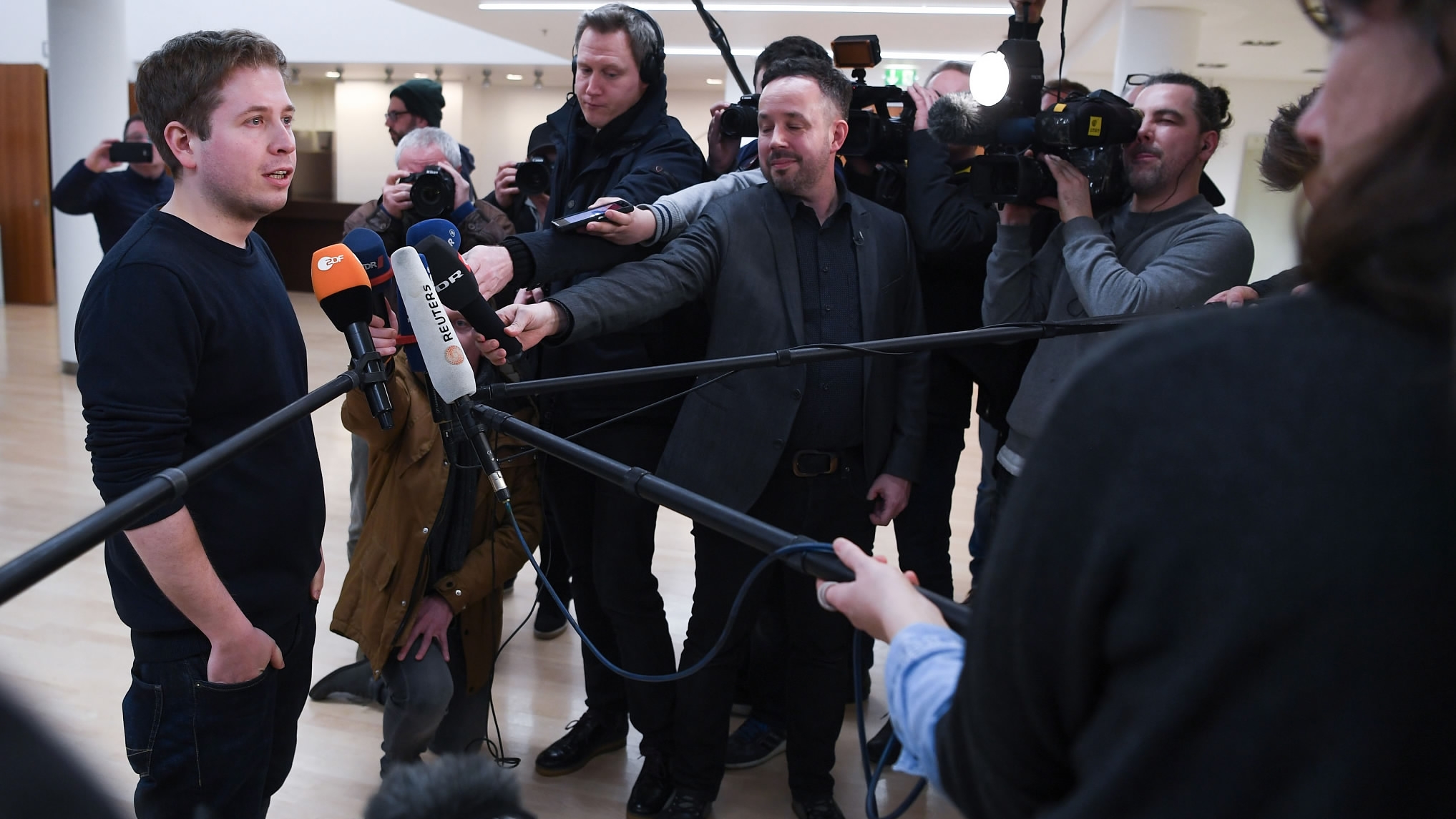
Kevin Kuehnert, head of the youth group of the SPD gives interviews during a multi-city campaign tour to convince party members to vote against joining a new government coalition on February 16, 2018 in Duisburg, Germany. /VCG Photo
Kevin Kuehnert, head of the youth group of the SPD gives interviews during a multi-city campaign tour to convince party members to vote against joining a new government coalition on February 16, 2018 in Duisburg, Germany. /VCG Photo
"We were against this coalition from the very beginning and it has a lot to do with the election result. The SPD and the Christian Democratic Union lost 14 percent of their votes. We don’t think that it is the task of these parties to form another coalition," Euronews quoted Kuhnert as saying.
The youth wing will hold a series of events across Germany in a bid to persuade members to vote “no” and has been encouraging people to sign up as members to oppose the deal. Around 25,000 new members have joined the SPD in recent weeks, according to Deutsche Welle.
Andrea Nahles, the SPD’s leader-in-waiting, is among the hierarchy attempting to persuade the party members to back the deal. She argues that Merkel is weaker than in the past, giving the SPD greater opportunities for influence.
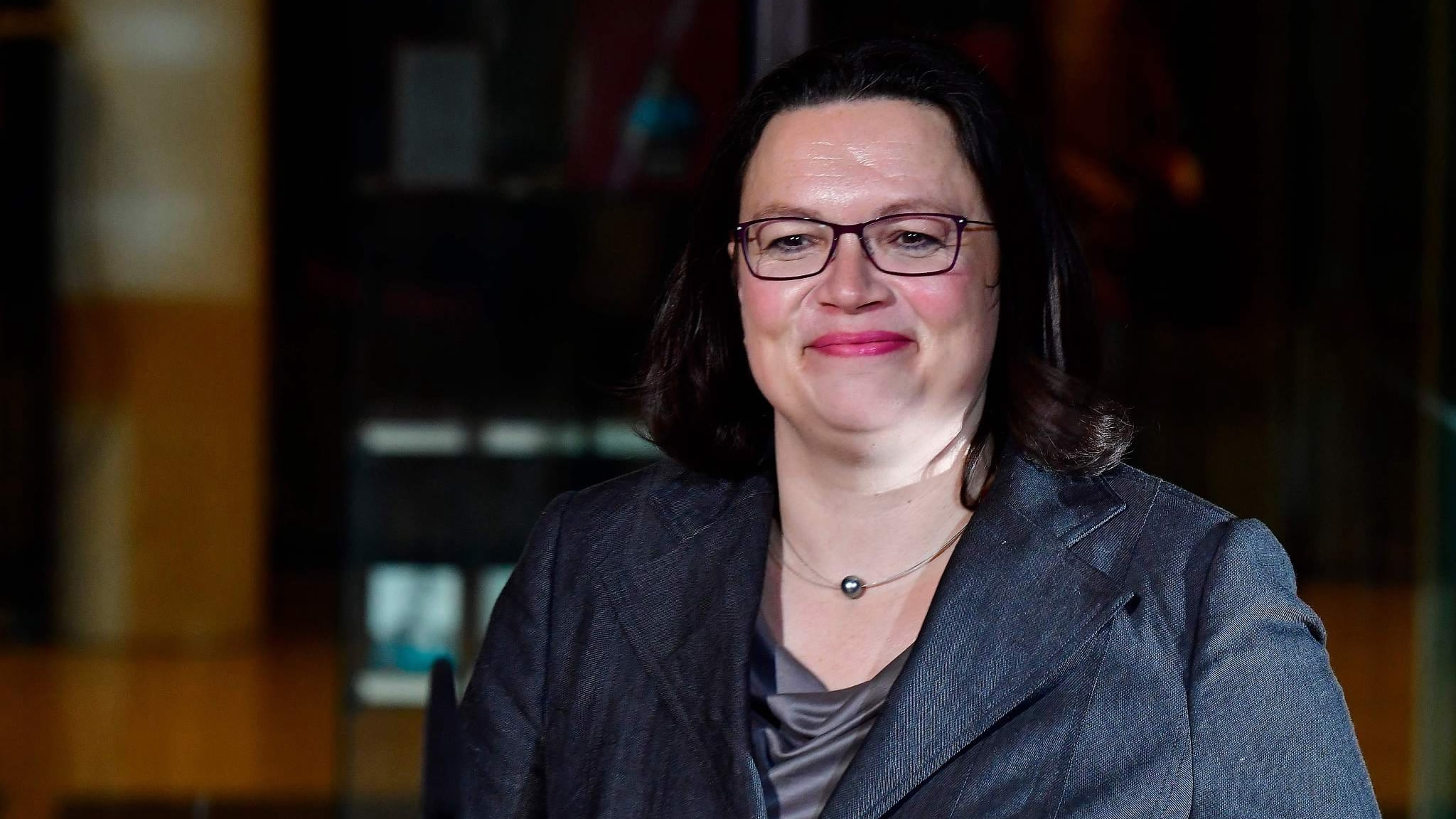
Andrea Nahles, the SPD's leader-in-waiting, arrives to give a statement at the SPD headquarters in Berlin, on February 13, 2018. /VCG Photo
Andrea Nahles, the SPD's leader-in-waiting, arrives to give a statement at the SPD headquarters in Berlin, on February 13, 2018. /VCG Photo
“We will not do a runner in this government. We will make our own policy proposals. We will consciously stand up to Mrs Merkel,” Nahles insisted in a speech on February 14.
Analysts were surprised when only 60 percent of delegates at a special SPD conference in January voted for talks with Merkel’s conservatives, given that the two previous grand coalitions had attracted strong support. Current polling suggests a narrow “yes” vote.
Election wipeout threat?
The SPD initially refused to countenance entering another coalition after its worst ever postwar results in September’s federal elections, instead planning to regroup in opposition.
Schulz, who also insisted he would not serve as a minister, reluctantly agreed to enter talks with Merkel's CDU/CSU alliance only after negotiations with smaller parties fell through. He then signed off on the coalition deal, and agreed to be Merkel’s foreign minister.
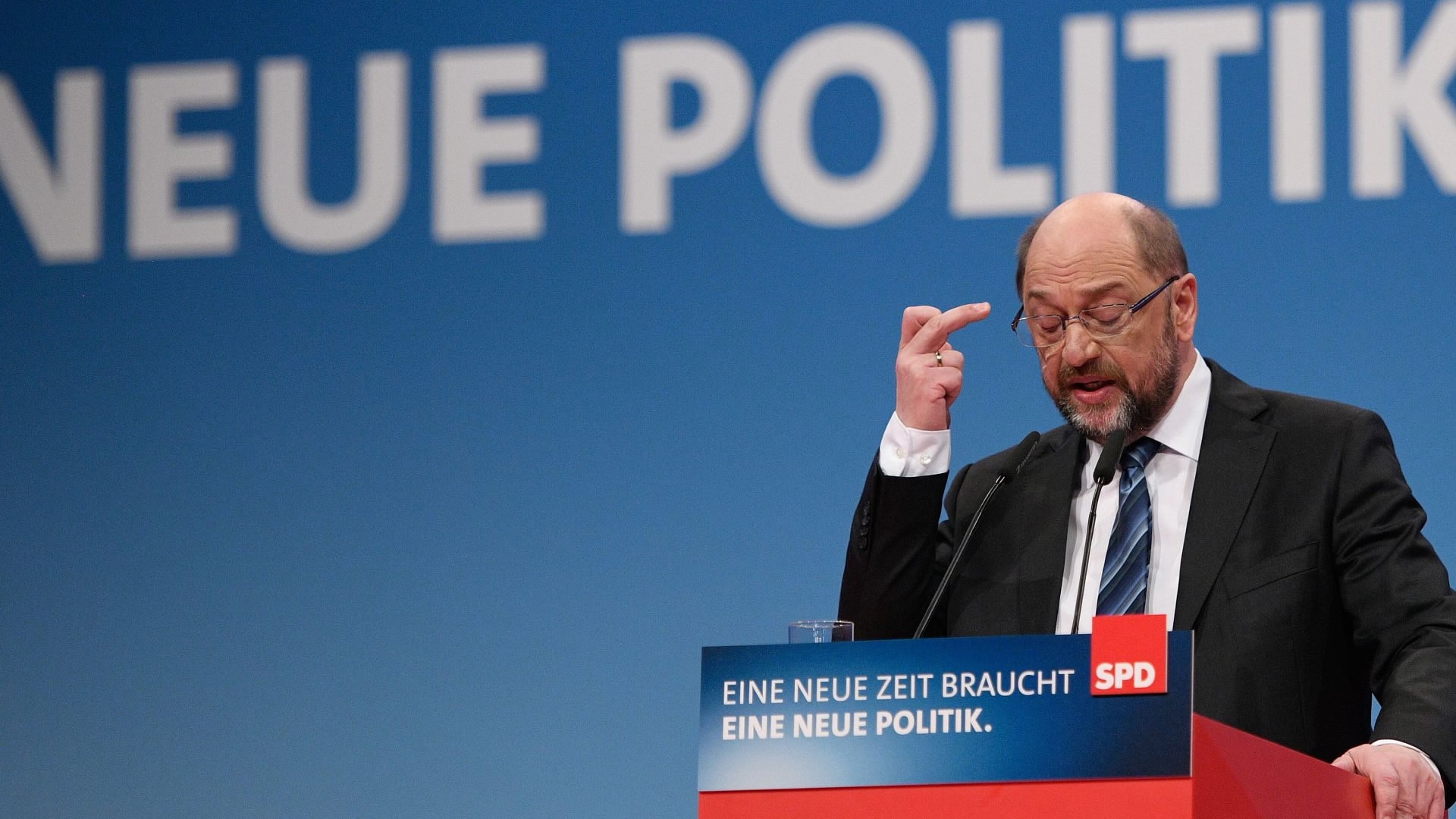
Martin Schulz, then leader of Germany's SPD party, speaks to delegates during an extraordinary SPD party congress in Bonn, Germany, on January 21, 2018. /VCG Photo
Martin Schulz, then leader of Germany's SPD party, speaks to delegates during an extraordinary SPD party congress in Bonn, Germany, on January 21, 2018. /VCG Photo
After a backlash, Schulz stepped down as leader and withdrew his name as nominee for foreign minister. Last week he engineered the nomination of Nahles as new leader. The lack of consultation is reported to have angered members. The 47-year-old must be confirmed by delegates at a party conference on April 22.
The latest polling suggests new elections could be even worse for the SPD. Support has plummeted since its leadership reluctantly moved to form another grand coalition, and regrouping in government may be the safer option for the party.
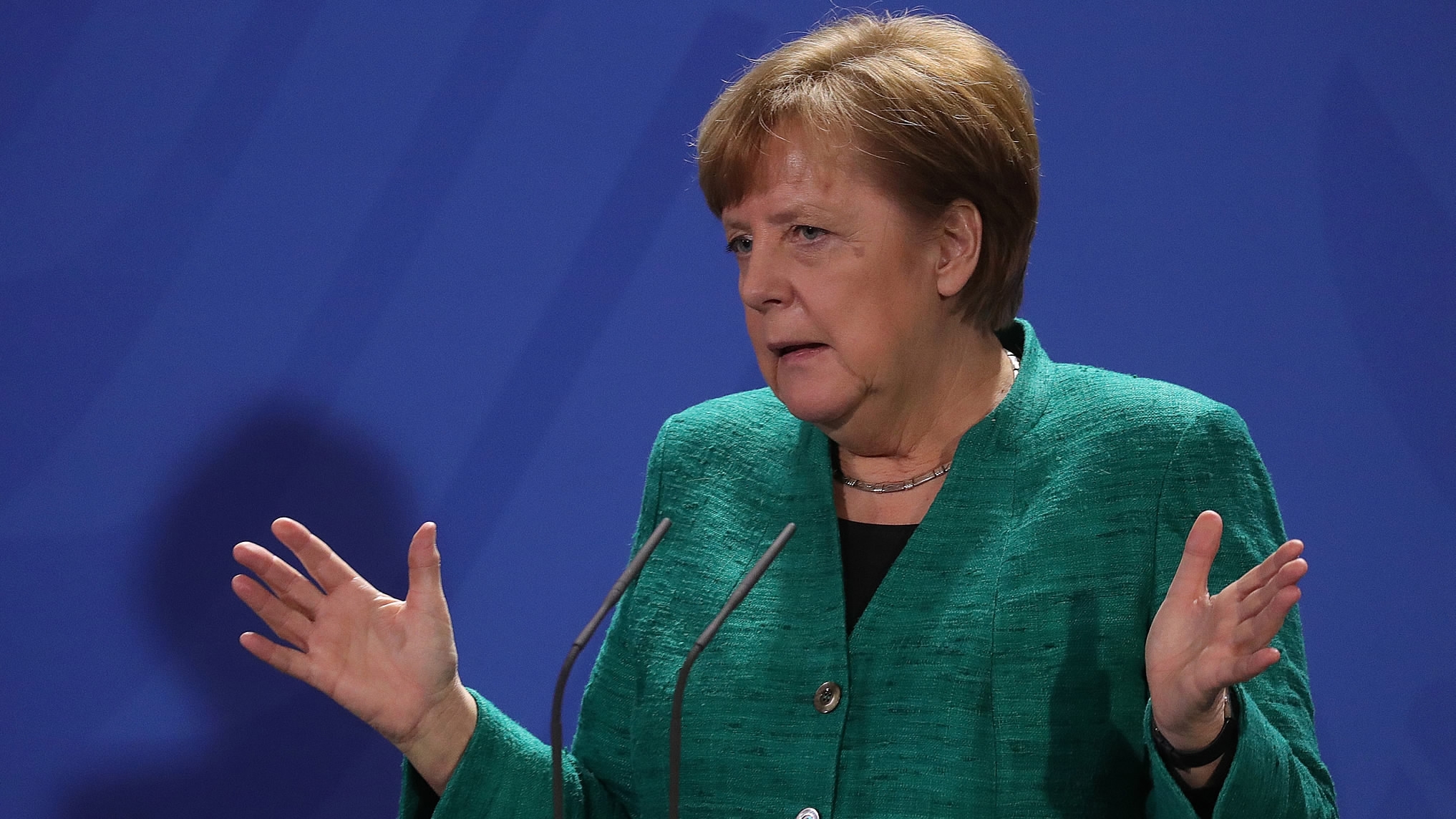
A new grand coalition would give Angela Merkel a fourth term as German chancellor. /VCG Photo
A new grand coalition would give Angela Merkel a fourth term as German chancellor. /VCG Photo
An Insa poll for Bild newspaper on Monday found the far-right Alternative for Germany (AfD) would beat the SPD and become the country's second-largest party for the first time if elections were held now.
Support for the SPD has fallen from 20.5 percent in September's general election to 15.5 percent, the INSA poll found, while the anti-immigration and anti-Islam AfD climbed from 12.7 to 16 percent. Merkel's conservative CDU/CSU bloc remained at 32 percent.
What’s in the coalition deal?
The big win in the four-year coalition deal for the SPD was the distribution of ministries. The party would retain the foreign ministry, which it held under the previous coalition, and gain the top finance post along with four others. If the agreement is approved, acting party leader Olaf Scholz would take the reins of Europe’s biggest economy.
The coalition deal would see the balanced budget continued, with a 46 billion euro surplus spent on social and infrastructure projects, and strong support for EU reform.
Merkel’s CDU will also vote on the deal, at a party conference on February 26, but despite disquiet over giving up the finance ministry a clear majority is expected.
The SPD members have until March 2 to submit their votes, with the result expected on March 4.

